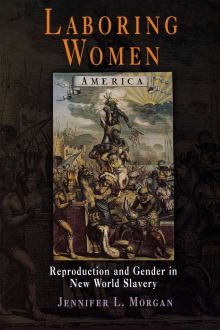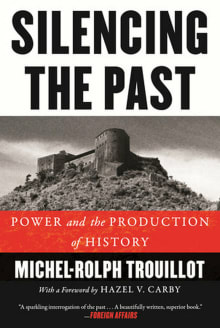
❤️ loved
this book because...
My favorite read of 2024 is Sara Johnson's "Encyclopédie Noire: The Making of Moreau de Saint-Méry's Intellectual World" It is a creative, audacious, intellectually challenging, and beautifully written work of history, one that challenges our conventions about how to approach archives, sources, and the so-called "great men" of history. Moreau was an enlightenment era polymath, a lawyer and philosophe who left a vast archive that scholars of the eighteenth century French world (especially those of the Caribbean) have found indispensible to understanding the Age of Revolutions. Johnson's fabulous innovation is to write a collective biography about the people around Moreau - the enslaved women, men, and children, and free people of color - whose labor provided him the opportunity to have the life of the mind he craved, and whose knowledge (among that of many others) he colonized. To shade in their lives, Johnson plays with content and form - the literal fonts and typeface of the book changes; she collaborates with artist Luz Sandoval to create new ways of seeing the people around Moreau, as well as the man himself; and she invites us to consider the daily violence experienced by enslaved people by reformulating how we encounter the brands on their bodies, or the sounds they heard coming from their enslavers mouths. Most of all, we leave the book with a knowledge and new appreciation for the people around Moreau, the very women, men, and children whose presence and experiences he worked so hard to erase.
This book important for how it challenges readers to rethink the history of Saint Domingue (Haiti), for the questions it poses about constitutes intellectual history (or indeed an intellectual project), and for what it reveals about the deeply embedded and co-constitutive relationship between slavery and enlightenment era thinking. But in addition to these significant contributions, Johnson's book forces us to reckon with how we understand the practice of history. Every chapter, every illustration, every methodological turn was a revelation. I first read this book with graduate students in a course on Comparative Slavery. And then I read it again with a different group of graduate students in a Methods and Theory class. In between, I've revisited it several times myself. You would have to go a very long way to find a book as thought-provoking, generative, and inspiring as this book. Go read it immediately!
-
Loved Most
🥇 Originality 🥈 Teach -
Writing style
❤️ Loved it -
Pace
🐇 I couldn't put it down
2 authors picked Encyclopédie noire as one of their favorite books, and they share why you should read it.
If you peer closely into the bookstores, salons, and diplomatic circles of the eighteenth-century Atlantic world, sooner or later Mederic Louis Elie Moreau de Saint-Mery is bound to appear. As a lawyer, philosophe, and Enlightenment polymath, Moreau created and compiled an immense archive that remains a vital window into the fragile social, political, and intellectual fault lines of the Age of Revolutions. But the gilded spines and elegant designs that decorate his archive obscure the truth: Moreau's achievements were, at every turn, predicated upon the work of enslaved and free people of color. Their labor amassed the wealth that afforded…
- Coming soon!







